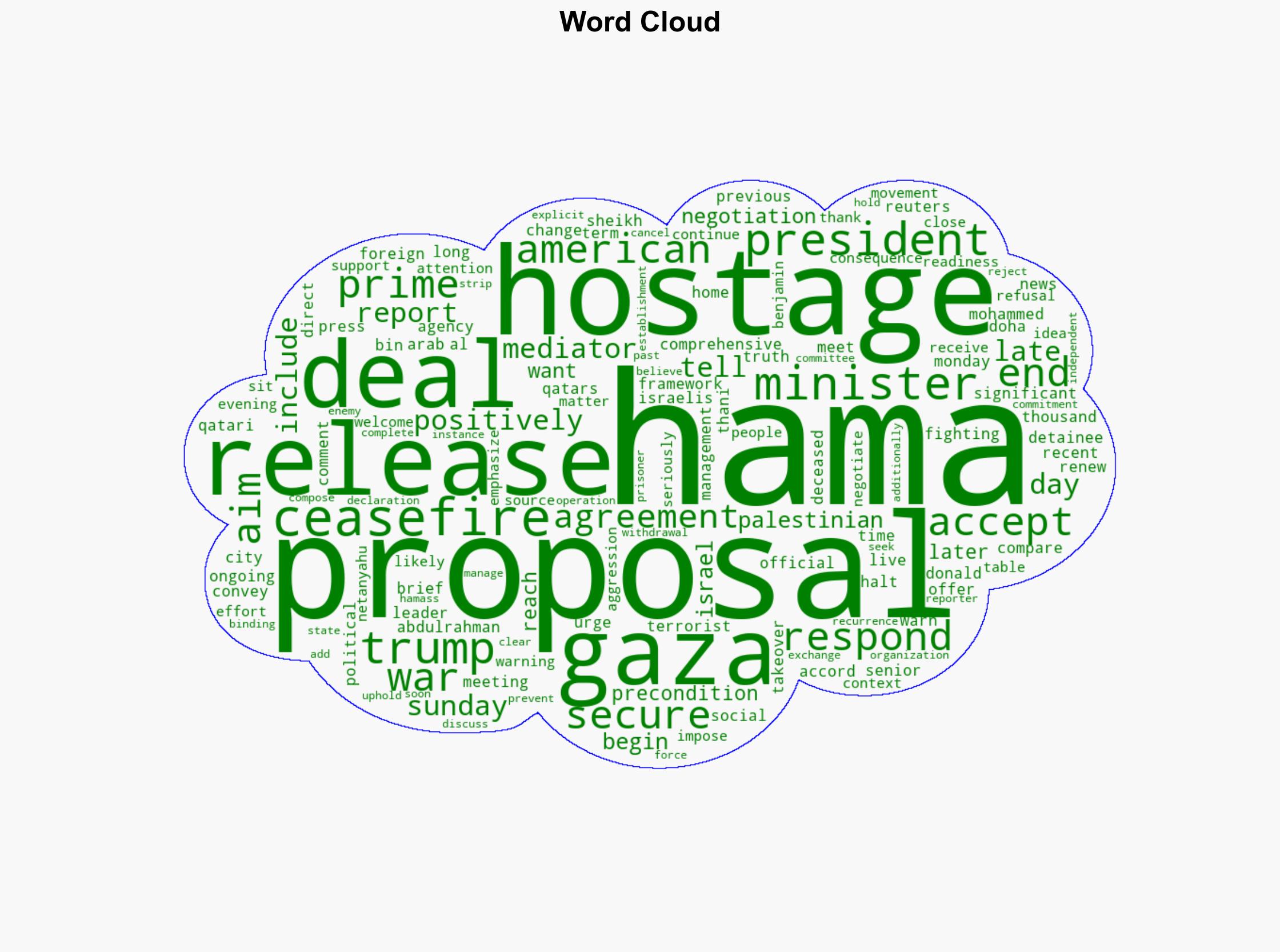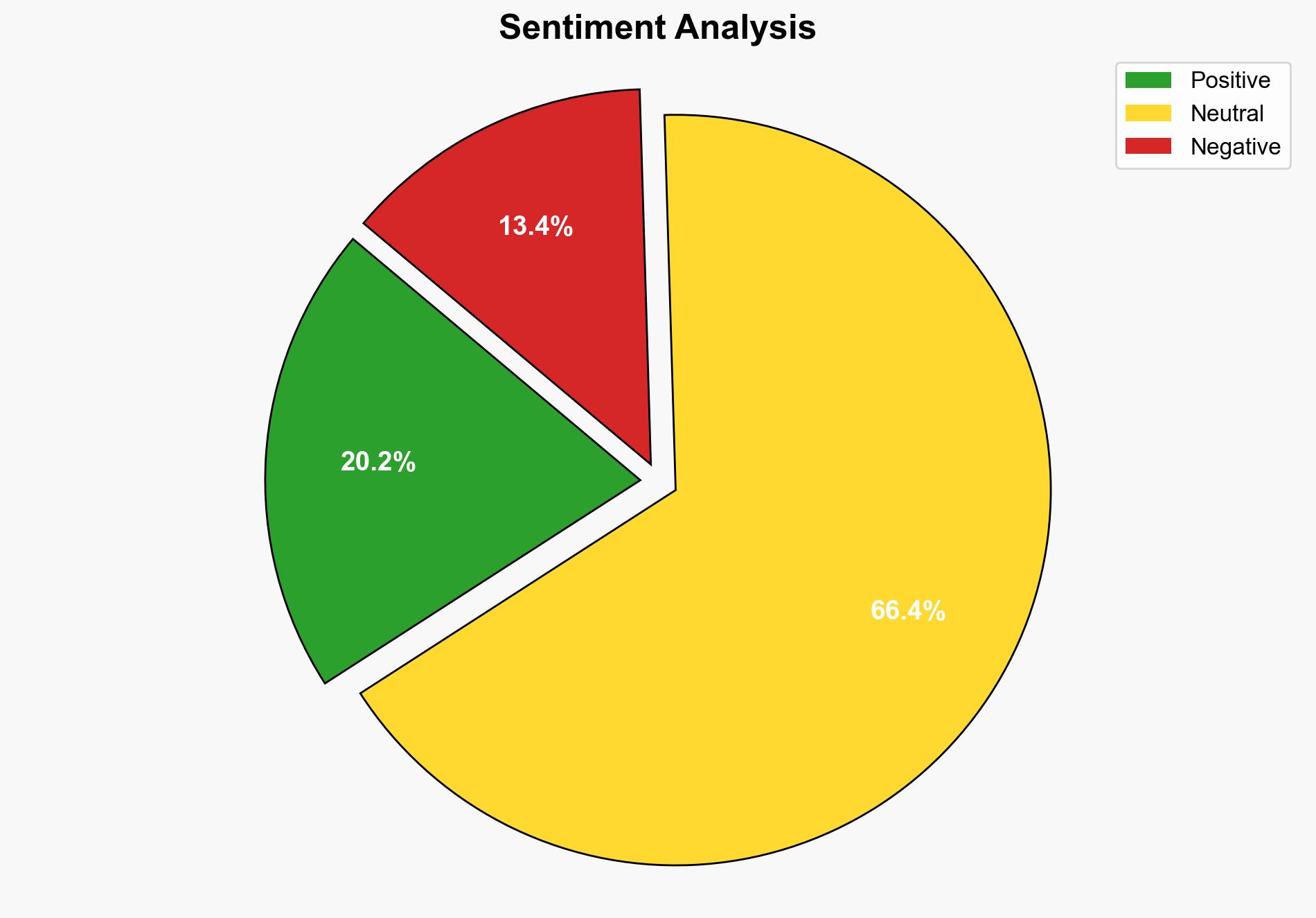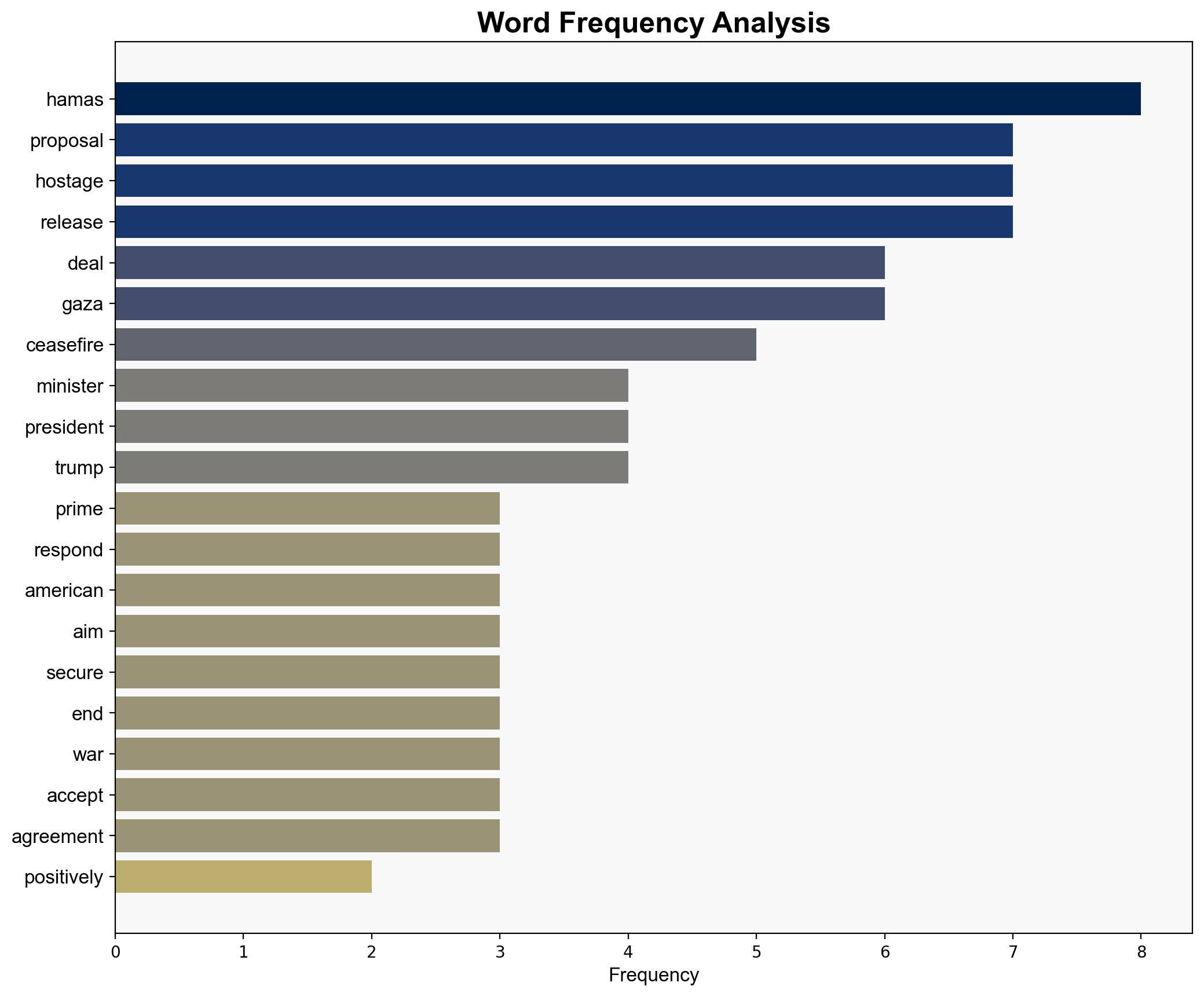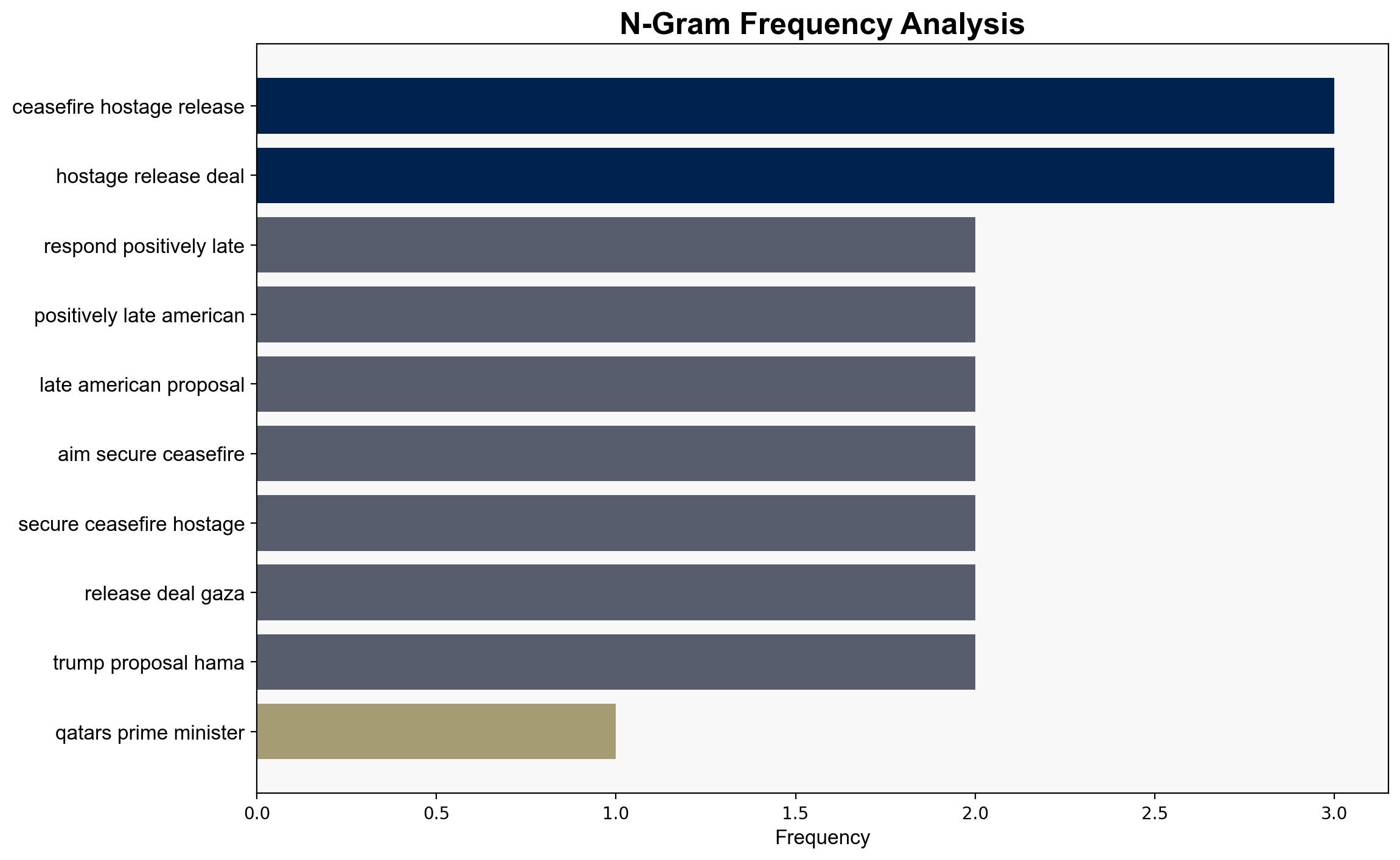Report Qatar PM presses Hamas to accept US ceasefire-hostage deal – Israelnationalnews.com
Published on: 2025-09-09
Intelligence Report: Report Qatar PM presses Hamas to accept US ceasefire-hostage deal – Israelnationalnews.com
1. BLUF (Bottom Line Up Front)
The most supported hypothesis is that Qatar is acting as a mediator to facilitate a US-backed ceasefire and hostage release deal between Hamas and Israel. This hypothesis is supported by Qatar’s active engagement and the strategic interests of the US in stabilizing the region. Confidence level is moderate due to uncertainties in Hamas’s response and potential Israeli conditions. Recommended action is to support diplomatic efforts while preparing for potential escalation if negotiations fail.
2. Competing Hypotheses
1. **Qatar is genuinely mediating to secure a ceasefire and hostage release deal.** This hypothesis suggests that Qatar is leveraging its influence over Hamas to broker a deal that aligns with US interests, aiming to stabilize the region and improve its diplomatic standing.
2. **Qatar’s mediation is a strategic maneuver to delay or complicate negotiations.** This alternative posits that Qatar might be using its position to gain leverage or delay outcomes, potentially benefiting from prolonged instability or extracting concessions from involved parties.
Structured Analytic Technique: **Analysis of Competing Hypotheses (ACH) 2.0** was used to weigh evidence supporting each hypothesis. The first hypothesis is better supported by Qatar’s historical role as a mediator and the explicit mention of US-backed proposals.
3. Key Assumptions and Red Flags
– **Assumptions**: Qatar has sufficient influence over Hamas; the US proposal is viable and acceptable to all parties.
– **Red Flags**: Hamas’s historical resistance to external pressure; potential Israeli preconditions not fully disclosed; lack of clear commitment from Hamas.
– **Cognitive Bias**: Confirmation bias may lead to overestimating Qatar’s influence or the feasibility of the US proposal.
4. Implications and Strategic Risks
– **Geopolitical**: Successful mediation could enhance Qatar’s diplomatic influence and stabilize the region, but failure may lead to renewed hostilities.
– **Economic**: Prolonged conflict could disrupt regional trade and energy markets.
– **Psychological**: Public perception of US and Qatari roles may affect regional alliances and domestic support.
– **Escalation Scenarios**: Breakdown in negotiations could lead to intensified conflict, impacting civilian populations and regional stability.
5. Recommendations and Outlook
- Support ongoing diplomatic efforts by providing intelligence and logistical support to mediators.
- Prepare contingency plans for potential escalation, including humanitarian aid and regional security measures.
- Scenario Projections:
- **Best Case**: Successful ceasefire and hostage release, leading to long-term peace negotiations.
- **Worst Case**: Breakdown of talks, resulting in renewed and intensified conflict.
- **Most Likely**: Protracted negotiations with intermittent conflict, requiring sustained diplomatic engagement.
6. Key Individuals and Entities
– Sheikh Mohammed bin Abdulrahman Al Thani
– Senior Hamas political leaders
– President Donald Trump
– Benjamin Netanyahu
7. Thematic Tags
national security threats, cybersecurity, counter-terrorism, regional focus





